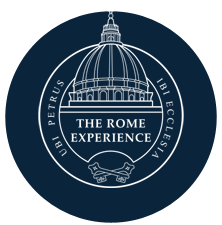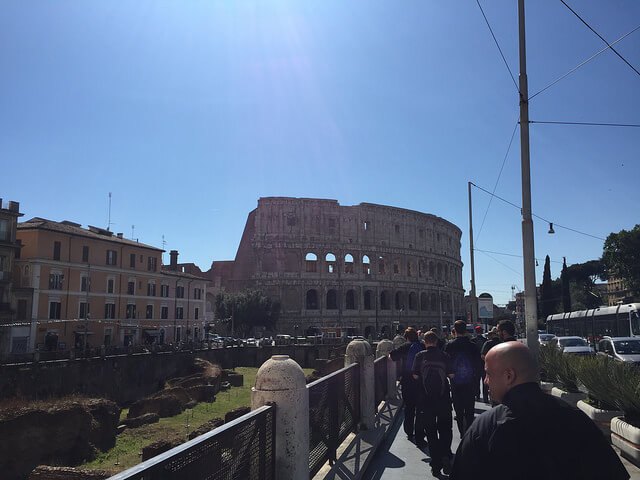A Reflection on Week 3 of The Rome Experience
When I was in Sacramento last summer visiting some seminarian friends of mine, I was struck by how many homeless people there were around the city. Many homeless people—but in my experience, not many beggars. Here in Rome, the situation is different. Likely because it’s a big tourist spot, there are a plethora of beggars. Our group of seminarians has gotten very used to hearing “Padre! Padre!” from old women, shaking their plastic cups with coins.
On the one hand, I want to be helpful and alleviate whatever suffering they might be enduring. On the other hand, I am a finite resource in a world of infinite need. If I gave to one, I ought to give to all, and I couldn’t possibly do that.
As we were walking by the Colosseum the other day, we nearly tripped over a beggar who was curled up almost into a fetal position. Covering nearly half of the sidewalk, he had his head down and his hands were out. He was silent, but his posture was enough to make the invocation: help me.
I might have walked by and forgotten him, but he made a particularly strong impression on me. Why? Because many hours later, we walked back the way we had come, and he was in the exact same position, as if he had not moved the entire time. It was hot and humid, the crowds were large, and I would venture to guess that some people—glued no doubt to their me-machines and obsessed with their selfie-sticks—had stepped on him along the way.
As I sat in prayer later that day, the image of this beggar kept coming to mind. His posture was indicative of the truth of his being: everything that he has was given to him. All is gift. Moreover (especially in non-western cultures), such a profound bow and a head facing downward is a sign of profound respect and reverence. For him, it might be a sign of gratitude toward the giver. Alternatively, as is the case with other beggars, he might also be experiencing some physical impediment.
Whatever the case may be, his is a beautiful posture to contemplate, because while we may walk past this beggar and not think twice about it, whether or not we want to admit it, we are all in that same position. Everything that we have is a gift. All is grace, in the words of St. Thérèse of Lisieux. Everything that we have has been given to us, and everything we possess is on loan.
Our Heavenly Father loves us infinitely here and now, and in every time and place knows, wants, and does what is best for us. Like children, we are totally dependent on him for everything we have. It seems our growth in holiness will proceed more quickly and our prayer will be more fruitful when we acknowledge this need to rely on him, and when we can bow our heads in profound reverence to the One in whom we live and move and have our being.
Phillip Shifflet
The Rome Experience Class of 2016
Diocese of Orange
Ordination 2020


